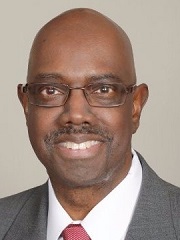5 points about leadership that get past the cliches and highlight what’s real

- It’s easy to focus on platitudes about leadership, but more incisive analysis unearths several key truths.
- Aspiring and established leaders should recognize that leadership is a process, not a skill, and is a journey that never ends.
- A commitment to engaging in reflection and to seeking feedback is vital for leaders to maximize their potential.
Leadership is probably one of the most misunderstood and misappropriated fields of study. You hear that leadership is all about acquiring “leadership skills” or following some sort of leadership formula du jour. This advice amounts to platitudes, not actionable takeaways.
To help you separate what is real from what is fluff, I have identified five truths about leadership based on my extensive leadership experience, leadership research, interviews with executives and time spent teaching in a university-based organizational leadership program.
Understanding these five truths will give you valuable perspective on what it takes to be an effective leader.
1. Leadership is a process, not a skill
Everyone has skills, but without refinement, those skills may never be fully developed. That’s why academic programs teach leadership as a process. The process involves:
- Understanding yourself
- Creating a leadership vision
- Executing on that vision
- Reflecting on how you have performed
- Receiving feedback
2. Leadership is a lifelong journey
One of the greatest mistakes by leaders is believing that once they have reached a certain level, they have little more to learn about leadership. If there were nothing more to learn after becoming a leader, people would still be leading organizations the same way they did 30, 20 or even 10 years ago.
Leadership is constantly evolving due to generational shifts, gender role changes and cultural adaptation, to name a few underlying factors. Leaders become less effective if they fail to recognize these major changes and also comparatively minor swings, such as changes in expectations relating to leadership styles.
3. Leadership is hard work
If leadership were easy, everyone would be a great leader. What separates the best leaders is their dedication to thinking about how they will lead and to reflecting on their performance.
The higher you rise in your organization, the more important leadership becomes. The job is no longer about marketing, finance or medicine — it’s about leadership. The best leaders surround themselves with specialists who can handle the technical areas and thereby allow the leaders to focus on their most important responsibilities.
4. Leaders need reflection and feedback
To realize their potential, leaders must engage in regular internal reflection and seek out external feedback. Sadly, these are the areas most neglected by both established and aspiring leaders.
Reflection helps leaders know themselves better than anyone else. It’s that internal voice that keeps us on track. I interviewed a hospital CEO who described how each evening before he goes home, he asks himself whether the founder of his hospital would be proud of the work he did that day. Another CEO told me she wakes up early each morning to review her calendar and prepare for potentially difficult meetings.
I follow a similar approach. It’s called scenario planning and is widely used by the military and law enforcement, but corporate and healthcare leaders would do well to adopt it. In scenario planning, you work through or think through as many possible outcomes as you can. After the meeting or situation, the leader reflects on how the actual outcome compared to the anticipated outcomes, gaining new insights to use in future scenarios.
As for external feedback, coaching and mentoring provide independent insight on how leaders can improve — and hold them accountable for improving. Coaches typically focus on the leader’s short-term or daily goals and can be internal to an organization, while mentors tend to focus on the leader’s long-term career or professional goals and may be based outside the organization.
5. Some people are just better at leadership than others.
A lot about leadership is derived from innate qualities. Just like dancing, some people are naturally better at it than others.
Natural leadership abilities can be identified at a young age. Think about one of the first games that many kids play: “Follow the Leader,” which usually is guided by a kid whom others in the group have identified as the leader.
Not everyone will be a great leader. Some will be simply good or functional leaders, and that’s OK. We need leaders at every level of every organization.





